
7 learnings from the Sustainable Travel Ireland 'Inspiring Sustainable Tourism' Conference
The annual ‘Inspiring Sustainable Tourism’ Conference hosted by Sustainable Travel Ireland comes at an opportune time of the year for learning - before the season kicks off and just as we begin a new year. This year it returned for its third online conference and was attended by inspirational and educated speakers from all around the globe who each brought their expertise within sustainability to the table in such a powerful and thought-provoking way. In this article, we will have a brief overview of standout moments of learnings from the speakers and some takeaways we felt we should share.
1. Empower your visitor
To open the conference we were joined by Ben Thorburn, Head of Marketing for Wilderness Scotland. With the goal of becoming Net Zero by 2030, Ben explored how they will achieve this commitment through a science-based methodology. An interesting element to Ben’s talk was to see the breakdown of carbon emissions per guest per trip. The first step was to calculate the impact which must have taken a lot of work, time and dedication to carry out these calculations. With travellers wanting to be more informed on their travel options and impact, providing these details empowers them to make more informed decisions and enables transparency.
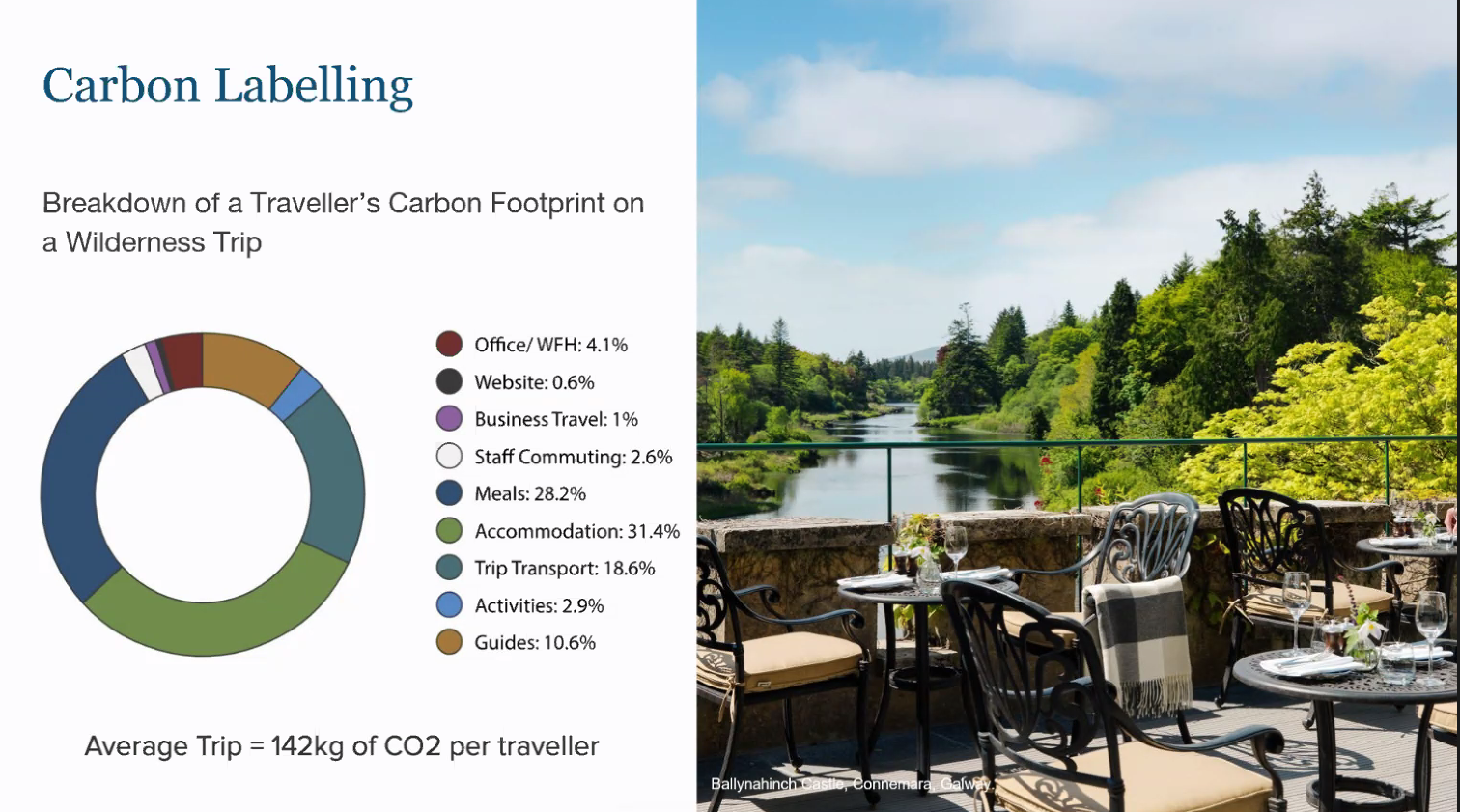
“You spend less and generate less staying with us than staying at home.”
Ben Thorburn
Ben was very open to sharing the details of their actions and inviting the delegates to enquire more about the tools for change they have used which embodies the ethos of sustainability and a shared journey.
2. Increase Sustainability by analysing your Tourist’s behaviour
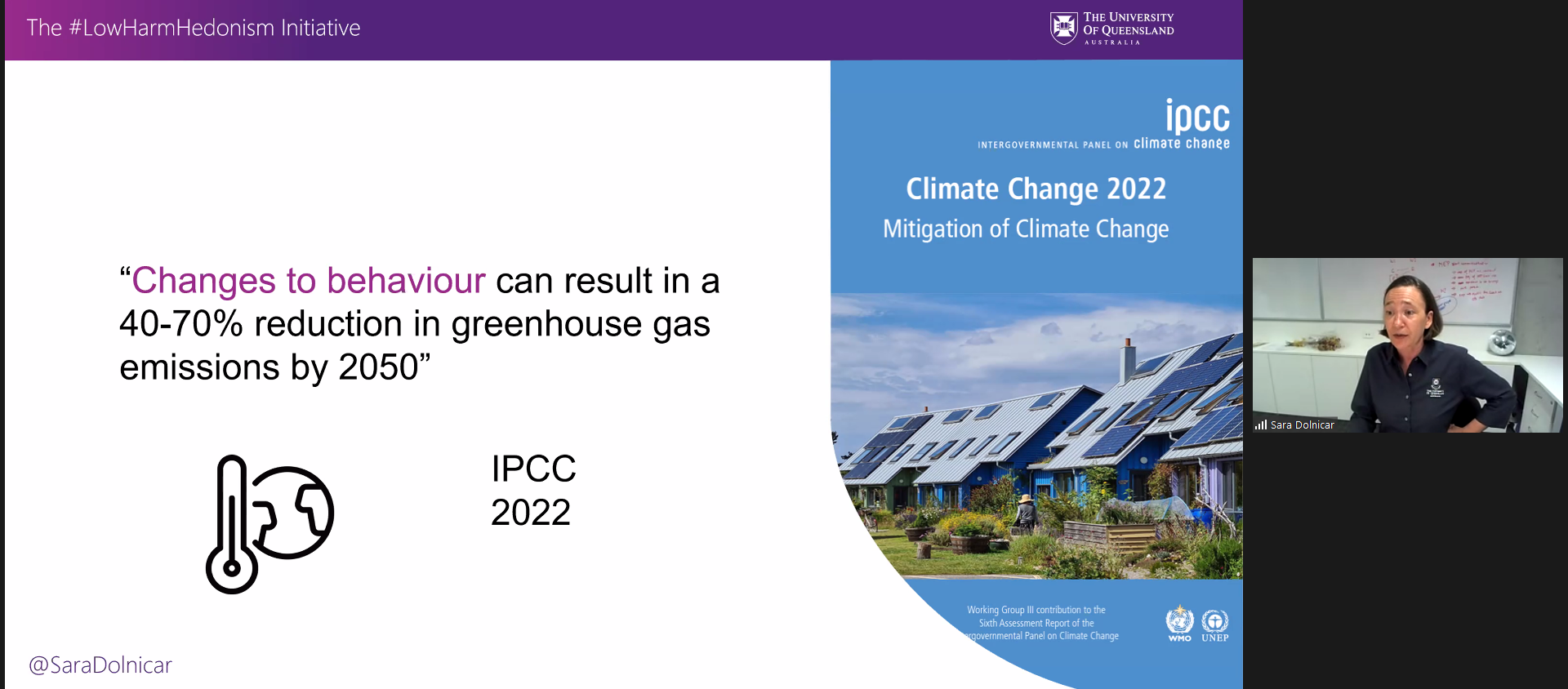
Sara Dolnicar, a renowned social scientist and researcher with the University of Queensland, bestowed upon us an insight into her fascinating research studies on tourist behaviour. In her talk she presented us with examples of how a hospitality service could be altered, without affecting the customer satisfaction and while simultaneously creating cost savings. Sara introduced the concept of hedonism tourism to us and explained that when tourists are in a state of enjoying themselves, it is difficult for them to think of future generations.
She shared an array of such practical and manageable actions of change that can be implemented by tourism and hospitality businesses that wouldn’t tamper with their visitor’s experience but that would combat cleaning costs, food waste, general waste, and more. Examples included a reward pin for guests who reuse their towels - nothing like a bit of peer pressure to bring out positive environmental change - this change saw a reduction of 40% in costs for the hotel and maintain customer satisfaction. Another point made was about signage and the need for creativity and to step away from the negative authoritarian signs on environmental actions. In the end, guests may not even take notice of them anymore and as Sara mentioned “it is not worth the paper it is written on”.
One very simple example of a hotel to decrease their costs was to ask upon arrival whether a guest would like their room cleaned. Their room would only be cleaned upon request. Another hotel offered a drink voucher to those who didn’t request a clean which saw 42% of cleaning costs being saved.
More information on Sara’s research can be found here. You may find some inspiration on how to implement more sustainable actions through further getting to understand the environmentally-friendly tourist.
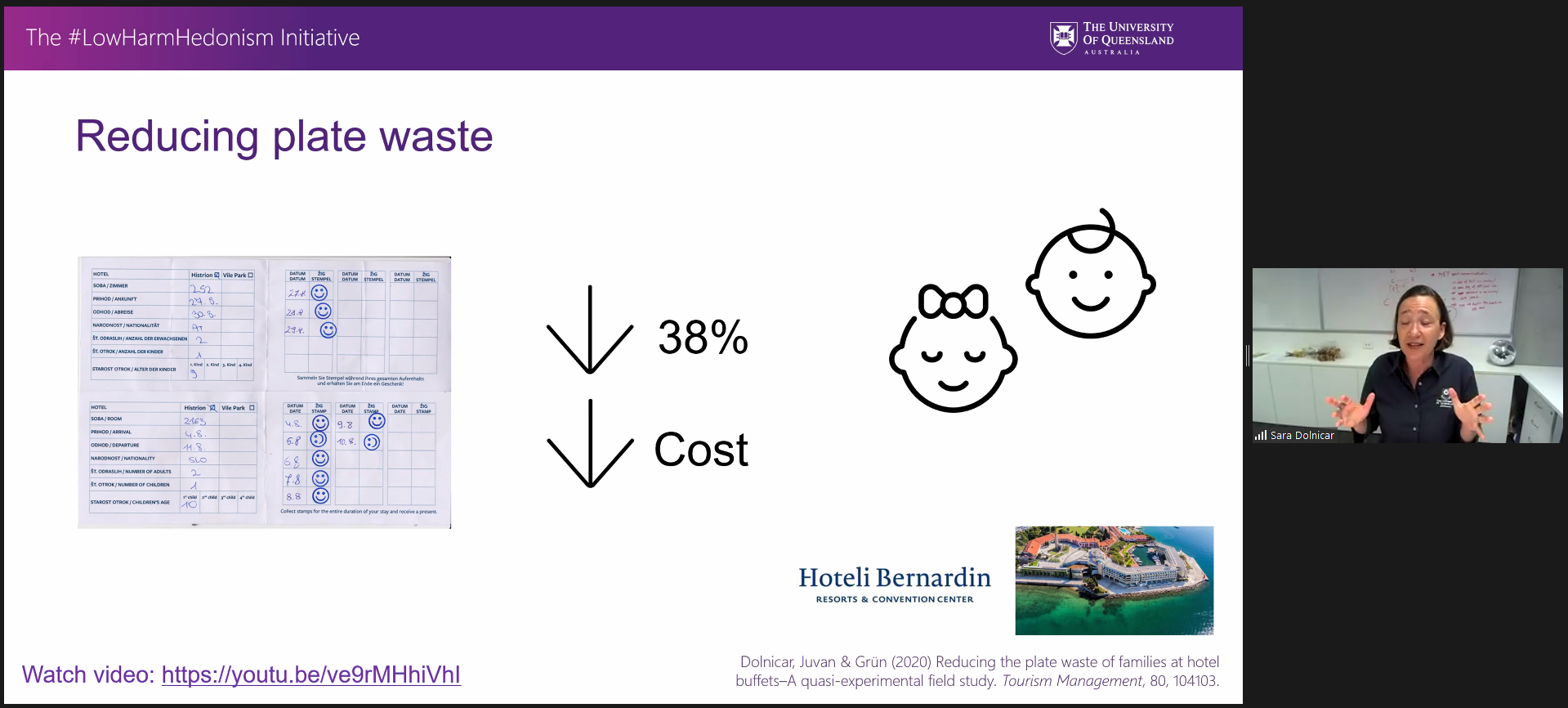
3. Better places to live, make for better places to visit
VisitScotland has been leading in highlighting the importance and raising awareness of Sustainable and Responsible Tourism through Scotland’s journey to become Net Zero by 2045 and the industry’s Responsible Tourism Strategy.
A low carbon economy, thriving communities, inclusivity and the preservation of natural and cultural heritage are 4 pillars of Scotland’s strategy. Through discussing the social and inclusive tourism programmes VisitScotland has launched, such as the ScotSpirit Holiday Voucher Scheme, Janie highlighted the benefits tourism can have on tourists psychologically such as improvements in social well-being.
James Chilton of KPMG Future Analytics shared with the room previous destination development projects they have worked on. He emphasised the importance of any development depending on making better places for the people who live there in this way you are creating “places that people want to spend time in”.
Crowd control and carrying capacity can affect the daily lives of residents as well as causing harm to heritage sites. Long queues to heritage sites can impact on the school run for instance. How can you manage intrusions on other people’s lives and other visitors’ experiences? Dr. Simon Woodward delved into how to balance overcrowding, and different ways to manage crowd control, be it through advance booking or setting different prices for different times of the day.
“Tourism makes for better places for people to live, which makes better places for tourists to visit”
Janie Neuman
4. Tell your story!
Janie also emphasised the importance of promotion and telling our sustainable and responsible tourism stories. Tourists want new experiences that are more sustainable and through storytelling this is the only way they will find out.
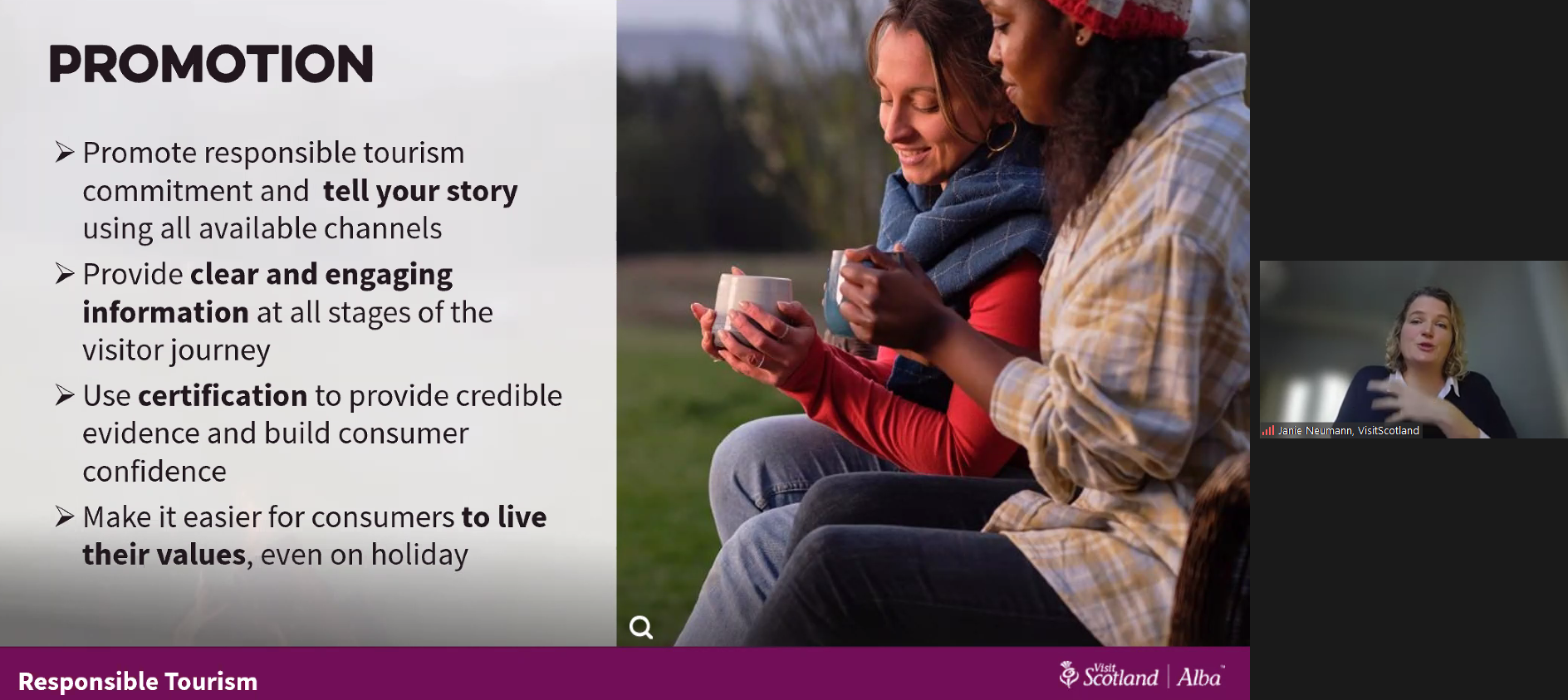
Mark Henry, Director of Central Marketing and Sustainability at Tourism Ireland, also echoed Janie’s comments, emphasising “it is important that whatever you do, tell your story”. Mark built on this by describing the industry opportunities with Tourism Ireland and to share your businesses sustainability story with them in their international promotion of Ireland overseas.
It was a joy to hear from Rob Holmes, Founder and Chief Strategist of GLP Films who accentuated the opportunity that exists within sustainability through storytelling and expressing the unique and authentic identity and essence of a destination through visuals.
“Don't sell me something, engage me, take me on a trip, tell me a story”
Rob Holmes
Videos can be so captivating and bring us right to a destination and put us in the story of your business or place. Being sustainable doesn’t mean you need to mention sustainability, it’s more actions than words and talking about the unique experience that you provide.
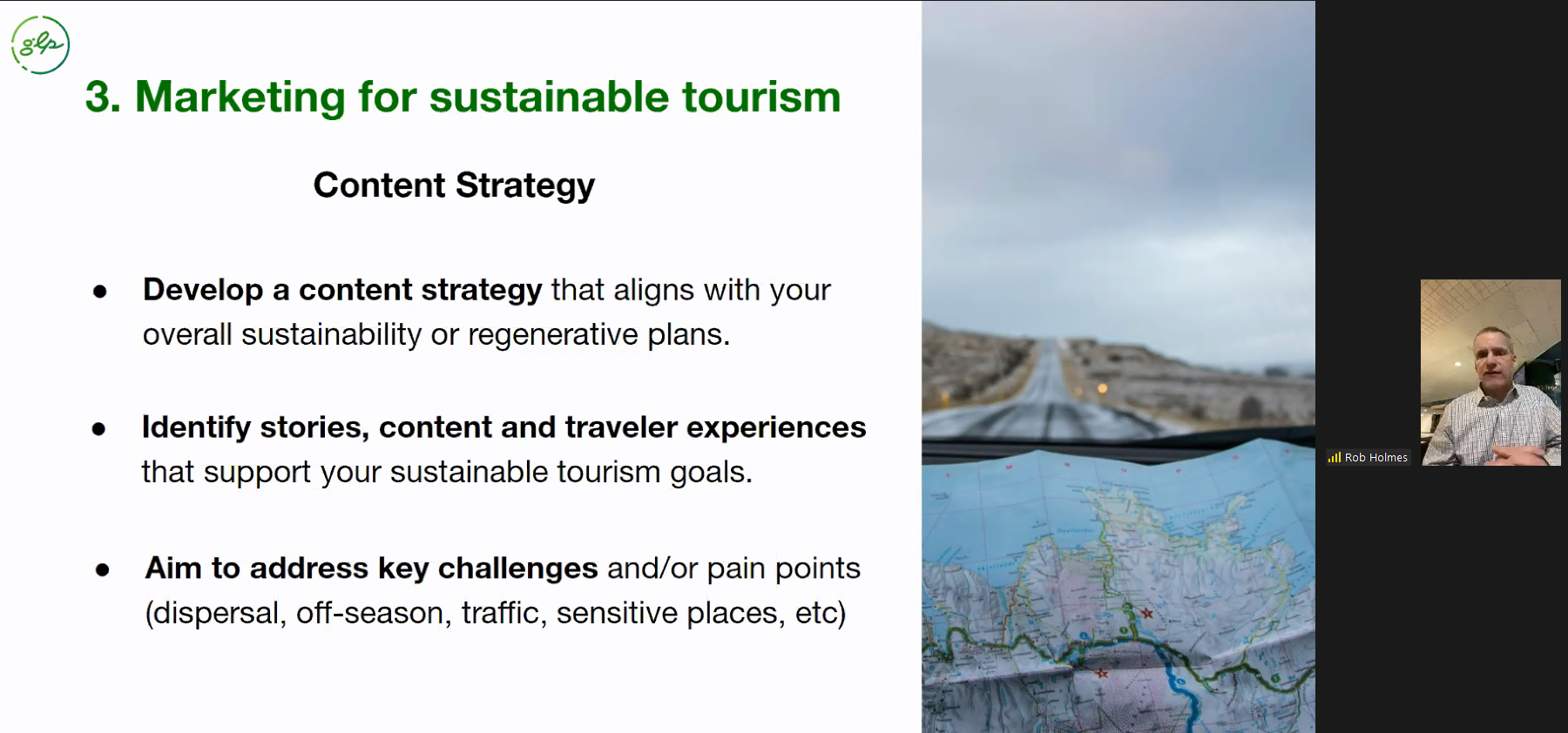
5. Small investments can have long term savings
Climate action topics were a focal point of the conference with the attendance of Colum Gibson of Clean Technology Centre, Christina Crawford of Úisce Éireann (Irish Water) and Alison Donellan of SEAI. Martina Kerr Bromley shared with delegates the work of Fáilte Ireland and the recent resources published by the Irish National Tourist Authority. These climate action guides highlight practices which can be implemented by tourism and hospitality businesses anywhere and that will be of interest to all operators. This was complimented by cases studies of Irish and international businesses who have already progressed in these areas.
Food waste
One third of all food produced for human consumption is being wasted however reducing food waste is something we can do every single day. This action is to be pushed with every country now having to report on food waste every 4 years. There is more to food waste than wasted food. What is produced, how it is produced and what is actually consumed needs to be considered when combating food waste. With 80% of brown bins containing food waste in one business, Colum shared tips on how to reduce not only waste, but costs through measuring and waste segmentation. Well labelled bins are still getting contamination however one simple action that can be done is including visual aids of specific items that would be going to waste to educate the visitor and for them to gain clarity on waste. Another area is really thinking about the waste that is being generated, how much is edible and can be given another life or another dish?
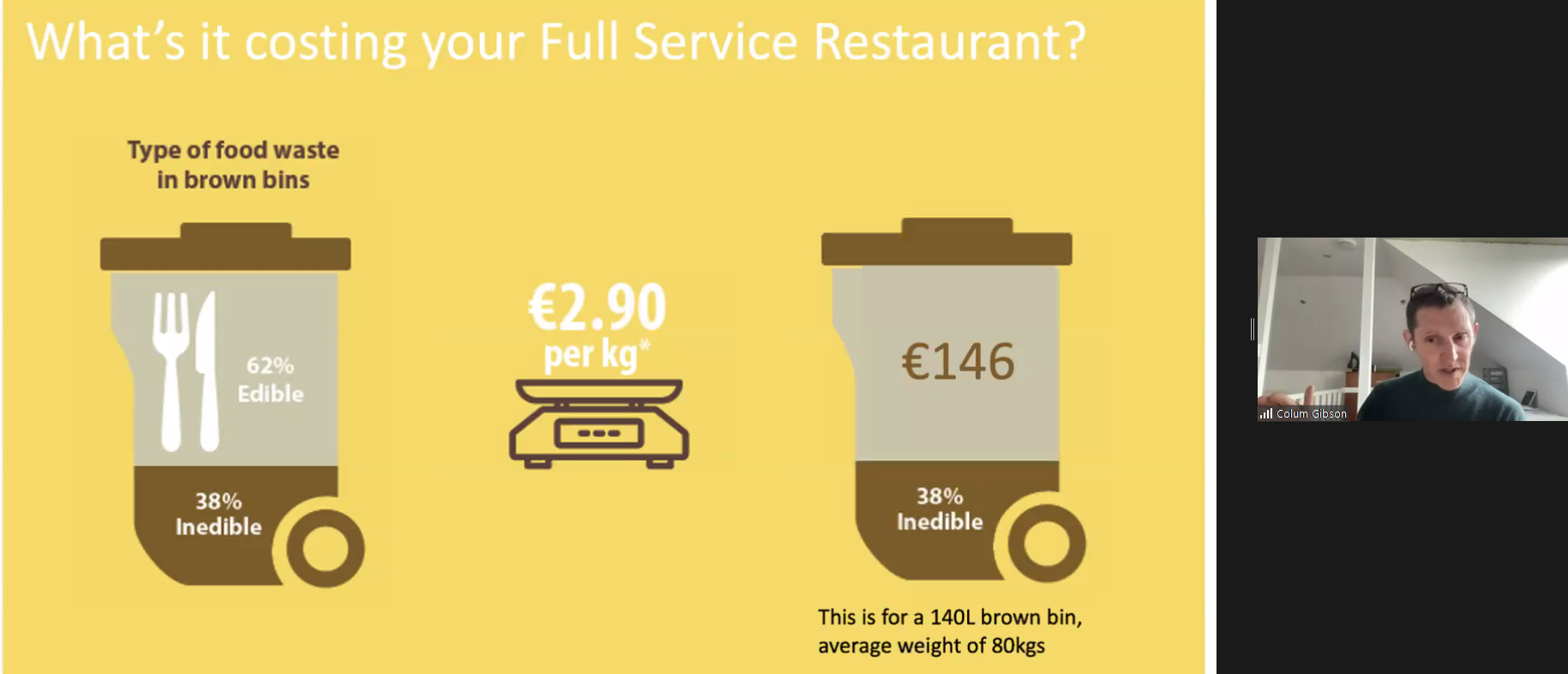
Water Conservation
Accountability, custodianship, reviewing and governance were areas covered by Christina when it came to water conservation. Think about the quick fixes that can make a substantial difference in the long run. Create a water map for your business. The majority of water lost is through leakages and this is something that can be easily fixed through night time tests and detecting leaks. Water custodianship ensures that water is used responsibly through reviewing water quantity and quality. Through working with stakeholders you can ensure fair and transparent water governance. Christina mentioned becoming a water steward through the free programme with Irish Water and appointing a steward from your team who can educate other team members.
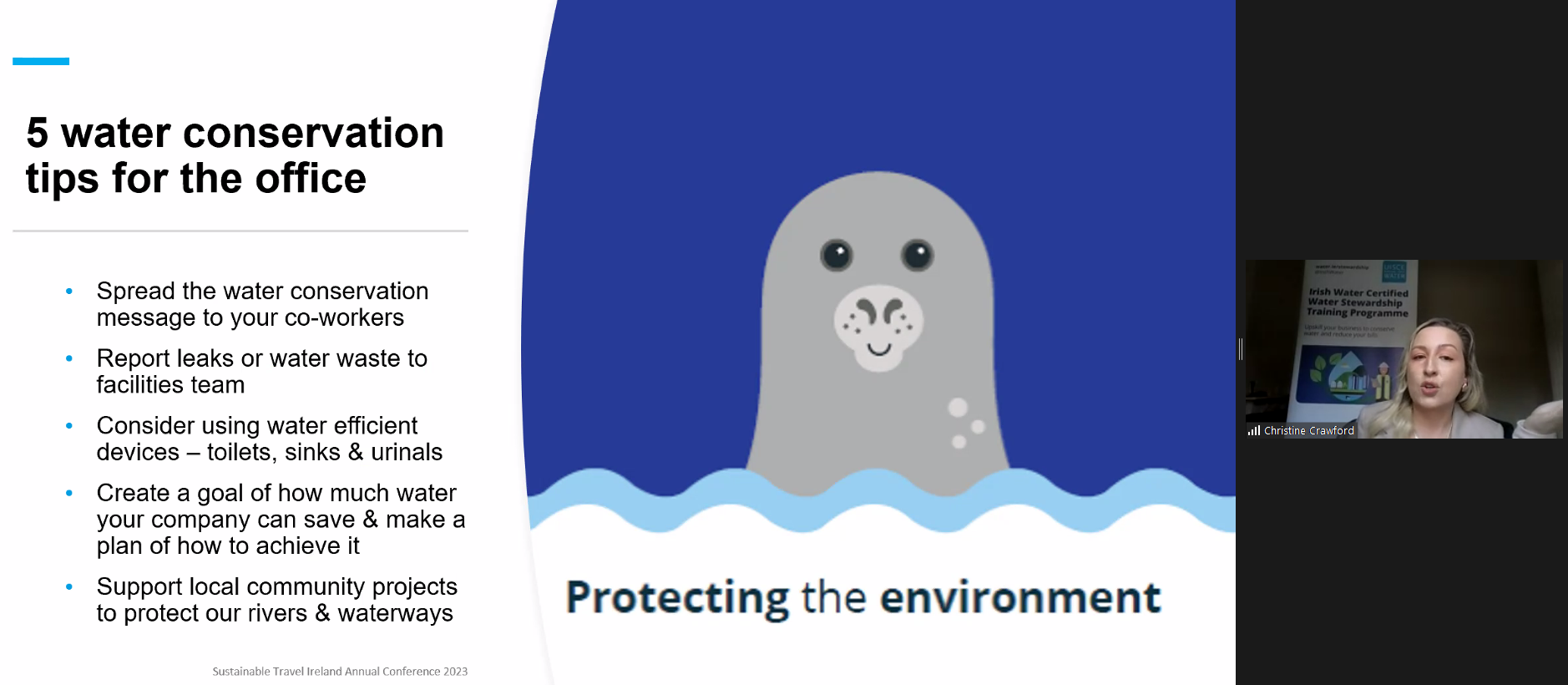
6. Doing Good attracts good attention
“We can’t be driven by consumer trends, we have to create them.” This was a powerful comment by Maria O’Connor, Head of Community for The Good Hotel as she depicted the goodness of the hospitality industry in how it brings people in while supporting the community. The Good Hotel puts community at its core and originated as a social business. This may be through ‘Neighbourhood Discounts’ or through its Good Training Programme. It offers education tools and skills to long-term unemployed people of its local community an opportunity to build long lasting careers in hospitality. This creates a stepping stone so its citizens can make a sustainable life for themselves. Through its programme a legacy in hospitality has been set with 70% of Good Trainees going on to gain permanent employment and profits donated to its NGO partner Niños de Guatemala. Maria shared that its marketing and PR budget is zero, empahsising that “doing Good attracts good attention”.
7. Value your time and your service
When considering sustainability, it is important to think about the economic sustainability of your business or destination also. Although Dr. Simon Woodward presented on Managing Heritage Sites for Sustainable Tourism, pricing and valuing your time and service was one important area that was investigated. He highlighted the work behind prices and that as consumers, we must respect prices that are set and consider the services that have gone into the creation of a product. Each visit generates income and viability for the site, however the challenge is balancing the conversation side of tourist sites with the need to create income through visits. Pricing must depict the whole picture, the examples Dr. Woodward gave were in relation to heritage site maintenance, conservation costs and even cleaning costs furthering his point with the fact that 20 years ago, The National Trust spent 70c of cleaning products and services on one Victorian House and now due to increase in visitors spends €2 per visit on cleaning.
Key points from the ‘Inspiring Sustainable Tourism’ conference
Overall, there were three areas of sustainability awareness raised by all speakers:
1. Collaboration
Try not to feel there is competition out there in this space, but to share widely, support others, share wins and also mistakes, step forward together.
“Not being worried about the competition or the market but being confident in the work you’re doing and the contribution you have to make to the industry”
Rob Holmes
2. Responsibility to drive the agenda
Step into our joint and shared responsibility to move the industry forwards. Try not to be complacent about following the consumer curve but actually take responsibility for inspiring and empowering visitors into the new space the industry needs to be in, providing leadership and paving a path for visitors to follow into:
“We can’t continue to be driven by consumer trends, we have to create them. Maybe the consumer isn’t 100% there yet, but science is! There’s an amazing possibility for tourism and hospitality to drive that agenda forward and inspire customers”
Maria O’Connor, The Good Hotel
3. We are all on a journey together
“every destination has different priorities but similar issues and opportunities”
James Chilton
To reinforce the closing message by Roisín Finlay of Sustainable Travel Ireland “keep going, collaborate, try something new innovative ways to behave better, we need to lead and get acting, be brave and have courage we have to do it.”


